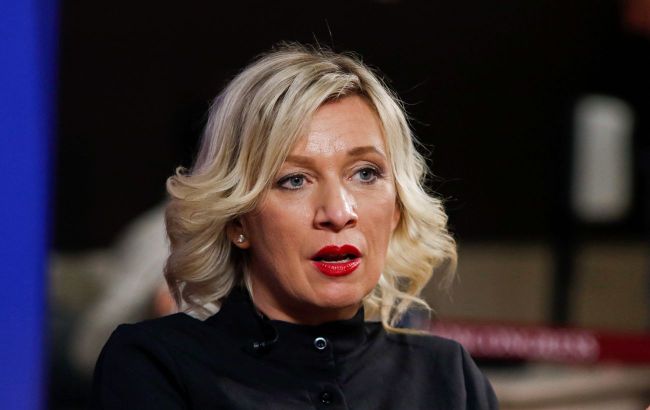Russia insists on a role in US-brokered peace deal between Armenia and Azerbaijan
 Photo: Russian Foreign Ministry spokesperson Maria Zakharova (Getty Images)
Photo: Russian Foreign Ministry spokesperson Maria Zakharova (Getty Images)
Yesterday, Azerbaijan and Armenia signed a peace agreement in the US. Nearly a day later, the Russian Ministry of Foreign Affairs said the final settlement must consider Moscow's position.
She paid little attention to the agreements between Baku and Yerevan. However, she immediately noted that both sides had consistently expressed reluctance to involve "external assistance."
"It is appropriate to remind that the current stage of Armenian-Azerbaijani normalization started with the direct support and central role of Russia," Zakharova said.
The Russian Foreign Minister added that the "optimal option" to resolve the conflict in the South Caucasus should involve only regional countries and their neighbors. She specifically mentioned Russia, Iran, and Türkiye. This implies no US involvement.
"We will further analyze Washington's statements regarding the unblocking of regional communications. In this area, the tripartite agreements involving Russia remain relevant. None of the parties has withdrawn from them," she added.
Zakharova also reminded of the presence of Russian border guards in Armenia.
Background
Azerbaijan and Armenia have been in a state of war for over 30 years since declaring independence. However, in 2020 and 2023, Baku regained control over Nagorno-Karabakh, effectively deoccupying its territory.
On Friday, August 8, Azerbaijani President Ilham Aliyev and Armenian Prime Minister Nikol Pashinyan met with US President Donald Trump.
In the presence of the American leader, they signed a peace agreement. It provides for the creation of a transit corridor called the "Trump route for international peace and prosperity."
This refers to the Zangezur corridor, which will connect Azerbaijan with the Nakhchivan Autonomous Republic, bypassing Iran and Russia.
Iran has already responded, warning it will block construction of the South Caucasus transport corridor even without Russian support.

